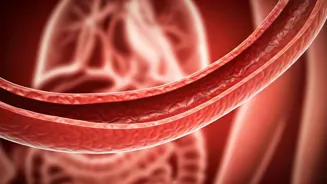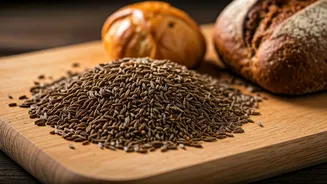Embrace Healthy Diet
Adopting a heart-healthy diet is crucial for artery cleansing. Focus on consuming foods that are rich in fiber, antioxidants, and healthy fats, while minimizing
the intake of saturated and trans fats, as well as processed foods. A diet rich in fruits and vegetables provides essential nutrients and antioxidants that can protect against arterial damage and reduce plaque buildup. Consider incorporating foods like avocados, olive oil, and fatty fish, which are sources of healthy fats. These foods help reduce LDL cholesterol (the bad cholesterol) and increase HDL cholesterol (the good cholesterol). Fiber-rich foods, such as oats, beans, and lentils, also play a vital role in lowering cholesterol levels. Remember to limit your consumption of red meat and processed meats, which can contribute to arterial plaque.
Regular Exercise Routine
Regular physical activity is another powerful tool for promoting healthy arteries. Exercise helps improve blood flow, lower blood pressure, and reduce LDL cholesterol levels. Engage in at least 150 minutes of moderate-intensity exercise or 75 minutes of vigorous-intensity exercise per week. This can include activities like brisk walking, jogging, swimming, or cycling. Exercise helps strengthen the cardiovascular system, making it more efficient at delivering oxygen and nutrients to the body's tissues and removing waste products. It also helps manage weight, reducing the risk of obesity, which is a significant risk factor for heart disease. Consider incorporating a variety of exercises to keep your routine engaging and to work different muscle groups. Remember to consult with your doctor before starting any new exercise program, especially if you have existing health conditions.
Manage Stress Levels
Chronic stress can contribute to the buildup of plaque in the arteries. Managing stress is vital for maintaining healthy arteries. Explore techniques like meditation, yoga, deep breathing exercises, or spending time in nature to relax and reduce stress. Chronic stress elevates cortisol levels, which can contribute to inflammation and arterial damage. Stress management techniques can lower blood pressure, improve circulation, and promote overall cardiovascular health. Consider incorporating mindfulness practices into your daily routine to cultivate a sense of calm and well-being. Adequate sleep is also essential for managing stress; aim for 7-8 hours of quality sleep per night. Identifying and addressing the sources of stress in your life, whether it's work-related or personal, is also a crucial step in reducing its impact on your health.
Quit Smoking
Smoking is a major risk factor for heart disease and significantly contributes to arterial plaque formation. Quitting smoking is one of the most important steps you can take to improve your artery health. Smoking damages the lining of the arteries, making them more susceptible to plaque buildup and increasing the risk of blood clots. The chemicals in cigarette smoke also raise blood pressure and LDL cholesterol levels. If you smoke, seek support from your doctor, join a smoking cessation program, or explore nicotine replacement therapy to help you quit. The benefits of quitting smoking are almost immediate; within a few days, your blood pressure and heart rate begin to improve. Over time, your risk of heart disease and other smoking-related health problems will decrease significantly. Quitting smoking is one of the most impactful changes you can make to improve your health.
Hydration & Supplements
Staying adequately hydrated and considering specific supplements can support artery health. Drinking plenty of water helps maintain blood volume and reduces the risk of blood clot formation. Some supplements, like omega-3 fatty acids, garlic, and CoQ10, have been shown to support cardiovascular health. Omega-3 fatty acids, found in fish oil, can help reduce inflammation and lower triglyceride levels. Garlic has been shown to have a modest effect on lowering blood pressure and improving cholesterol levels. CoQ10 is an antioxidant that can help protect cells from damage. Always consult with your doctor before taking any supplements, especially if you are on medications. A balanced diet that includes fruits, vegetables, and healthy fats, combined with adequate hydration, is the foundation of good health.












